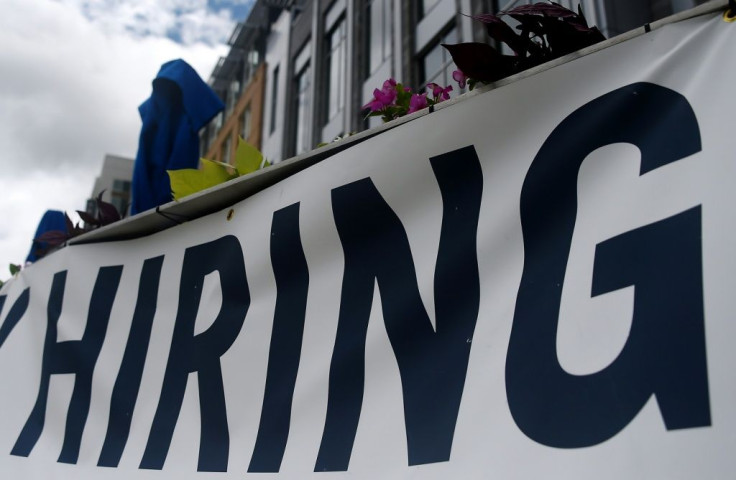US Layoffs May Finally Be Ebbing As Data Show Tapering Aid Claims
New applications for US unemployment aid continued their decline last week, in the surest sign yet that the world's largest economy is on the upswing after the mass layoffs wrought by the Covid-19 pandemic.
There were 547,000 new claims for jobless benefits filed in the week ended April 17, seasonally adjusted, the Labor Department reported on Thursday, the lowest since March 14, 2020 when the pandemic slammed the US economy.
It was the second consecutive weekly decline and better than analysts expected amid an accelerating national vaccination campaign that offers hope business in the United States can return to normal.
"This dip in jobless claims looks good in isolation but what really matters is that it confirms that last week's unexpected plunge was no fluke," said Ian Shepherdson of Pantheon Macroeconomics.
"We expect further declines over the next few months as the reopening continues, while payroll growth will accelerate markedly."
However, the data showed another 133,319 people, not seasonally adjusted, filed new claims under the Pandemic Unemployment Assistance program for freelancers and those not normally eligible for aid, slightly more than the week prior.
That brought total new applications last week to more than 680,000, but Rubeela Farooqi of High Frequency Economics said the downward trend in jobless claims is clear.
"While exposure to the virus likely remains a concern for workers, we expect to see a further decline in filings as the reopening continues and job growth accelerates over coming months," she said in a note.
After more than a year where each week would bring hundreds of thousands -- if not millions -- of new claims for unemployment aid, the surprise decline of 39,000 last week dropped the four-week moving average to 651,000, the lowest point since the start of the pandemic.
Through the week ended April 10, nearly 3.7 million people, seasonally adjusted, were receiving regular benefits, according to the latest data.
But the report was nonetheless a reminder of the widespread joblessness caused by business restrictions meant to stop the spread of coronavirus, with more than 17.4 million people, not seasonally adjusted, receiving unemployment aid nationwide as of the week ended April 3.

"Claims are still over double pre-crisis levels, but at least are making progress," Daniel Zhao of job search website Glassdoor said on Twitter.
In separate data released Thursday, the National Association of Realtors said existing homes sales declined for a second straight month as record-high prices and scarce inventory locked would-be buyers out of the market.
Existing home sales fell 3.7 percent to a seasonally adjusted annual rate of 6.01 million in March, with every region reporting declines.
While bad winter weather played a role in the 6.6 percent sales drop in February, analysts blamed March's underperformance on the rise in median sales price to a historic high of $329,100, NAR said.
Even with the price jump, properties only remained on the market an average of 18 days, a record low.
"Tight inventories that are boosting prices and impacting affordability remains a central issue and will be a headwind going forward," Farooqi said.
The housing market was one of the first sectors to bounce back following the pandemic's historic downturn, with buyers aided by cheap mortgages after the Federal Reserve slashed its benchmark lending rate to zero.
Sales were 12.3 percent higher than March 2020, but last month's decline put the sales pace back to the level of August 2020.
Prices were 17.2 percent higher than last March, gaining for the 109th straight month, while inventory was more than 28 percent lower than a year ago at 1.07 million units as of the end of last month.
Shepherdson said the dynamics of the housing sector were divorced from the US economy's overall recovery, while predicting that "sales have a good deal further to fall, though we remain hopeful that the second half of the year will bring an improvement."
© Copyright AFP 2024. All rights reserved.





















